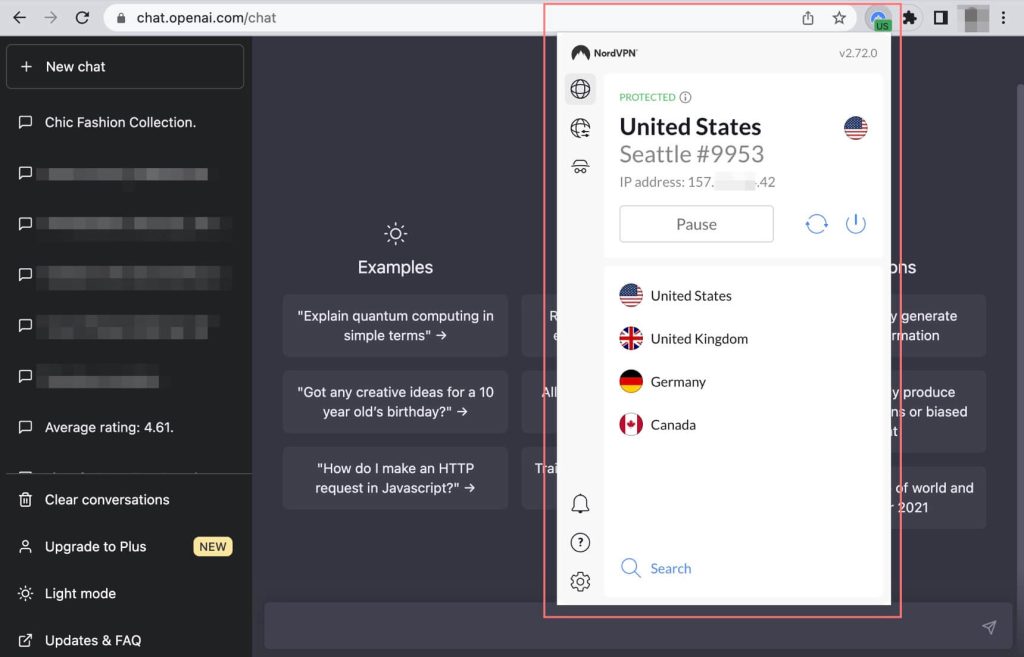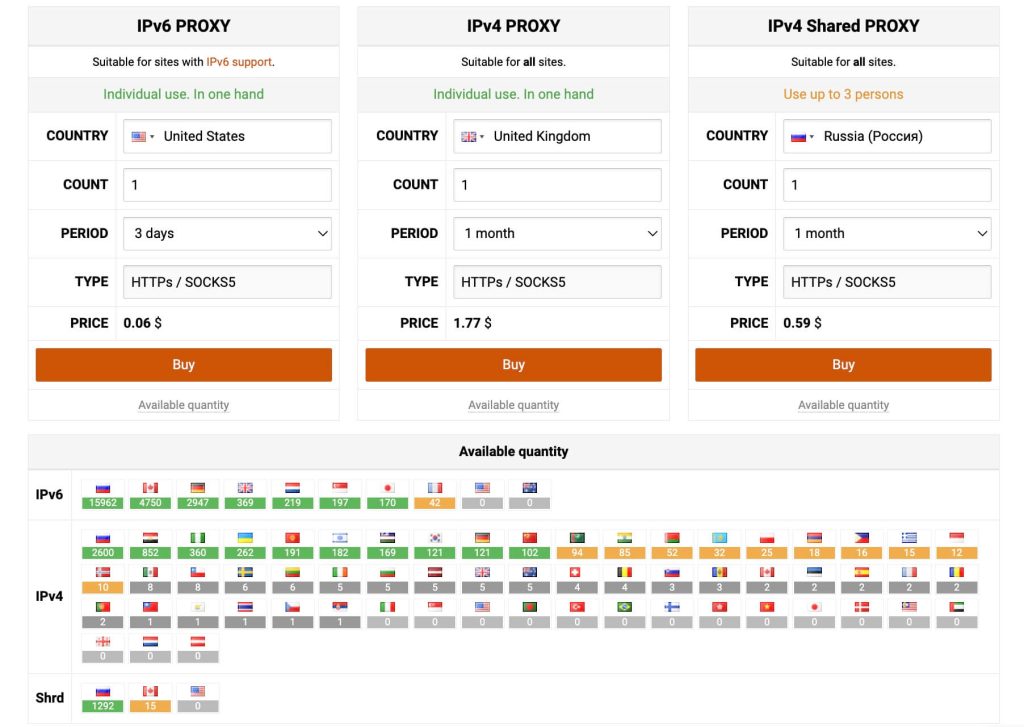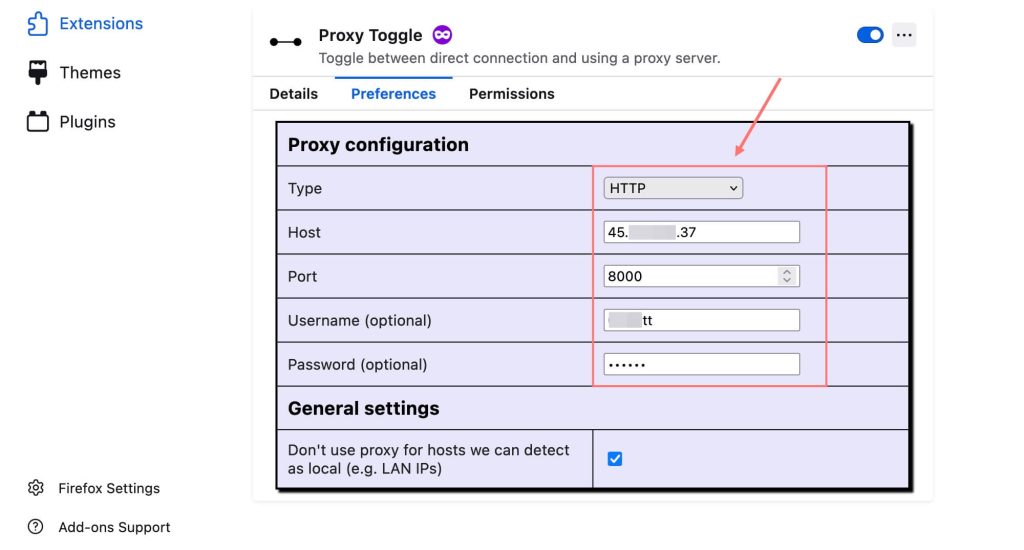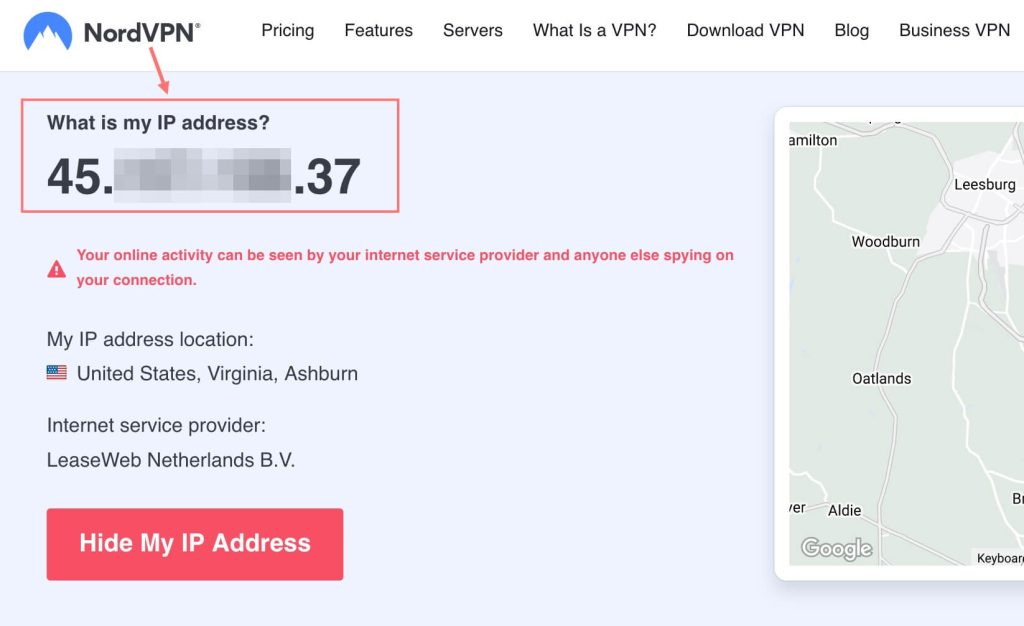There is no such thing as privacy on the Internet. Eventually, if somebody wants to find you, they will find you.
Paul Brookes
Nonetheless, masking your IP address still offer great help under these circumstances.
- Enhanced Security and Privacy: A VPN encrypts your internet traffic, making it more difficult for anyone to intercept and read your data. This is especially important when using public Wi-Fi hotspots or accessing sensitive information online.
- Access Geo-Restricted Content: Some websites and online services are only available in certain countries or regions. Some can be mentioned are ChatGPT, Stripe, or PayPal payment gateway. By using a VPN, you can bypass these restrictions and access content that would otherwise be unavailable to you.
- Protection Against ISP Snooping: Internet Service Providers (ISPs) have the ability to monitor your online activity and track your browsing habits. By using a VPN, your ISP won’t be able to see what you’re doing online, providing an extra layer of privacy.
- Anonymity: When you connect to the internet through a VPN, your IP address is hidden, making it more difficult for websites and services to track your location and online activities.
- Remote Access: If you need to access files or data on your company’s network while you’re away from the office, a VPN can provide a secure connection to access these resources remotely. This is especially useful for remote workers who need to connect to their company’s network from home or while traveling.
Ways to mask your IP address
There are several ways to mask your IP address to protect your online privacy and security. Here are 6 common methods:
- Use a Virtual Private Network (VPN): A VPN is a service that encrypts your internet traffic and routes it through a remote server, which allows you to mask your IP address and hide your online activity. VPNs are available as software applications that can be installed on your device, or as browser extensions.
- Use a Proxy Server: A proxy server acts as an intermediary between your device and the internet, which allows you to mask your IP address and hide your online activity. You can configure your device or web browser to use a proxy server by entering the proxy server’s IP address and port number.
- Use the Tor Network: The Tor Network is a free and open-source software that enables anonymous communication by routing your internet traffic through a series of relays, which makes it difficult for anyone to trace your online activity back to your IP address.
- Use iCloud Private Relay: This is one of iCloud+ premium features to help hide your IP address and protect your unencrypted internet traffic. This applies to browsing activity in Safari on every device associated with your iCloud account. However, the new IP address will be still within your country.
- Use a Mobile Network: If you’re using a mobile device, you can switch to a cellular data connection instead of a Wi-Fi network to mask your IP address. Mobile networks assign dynamic IP addresses to devices, which makes it difficult for anyone to track your online activity.
- Use a Public Wi-Fi Network: If you don’t want to use your own IP address, you can connect to a public Wi-Fi network, such as those found in coffee shops or libraries. Public Wi-Fi networks assign dynamic IP addresses to devices, which makes it difficult for anyone to trace your online activity back to your device. However, be aware that public Wi-Fi networks may not be secure, so you should exercise caution when using them.
As you can see, the two top choices for masking your IP address are VPN and proxy. In this article, I’ll show you how to change your IP address and achieve a different IP location.
How to change your IP address with NordVPN
NordVPN’s browser extensions are available for Chrome, Edge, and Firefox. It takes you just 3 steps to use NordVPN on your browser profile.
- Register NordVPN account
Pick the best plan for your needs and buy a NordVPN subscription.
- Add the NordVPN extension
Go to the Chrome Web Store and add the NordVPN Chrome proxy extension to one of your Chrome profiles.
- Connect via your country of choice
Open NordVPN Chrome proxy extension, log in to your account, and connect to the NordVPN proxy server!

Note: You can use NordVPN on a per-device basis, but we recommend using it on one of your browser profiles. In this way, the existing cookies on your main profile may not be attached to your new meant-to-be-private profile.
Tips: Use VPN with a unique IP address
If you want complete security and privacy, opt for a dedicated IP in your NordVPN plan. It allows you to pick one of the available locations from its supported country list: US, UK, Germany, Netherlands, France, Canada, Italy, and Japan. Add-on pricing: $4.19/month.
How to use a proxy to get a private and static IP address
- Buy a proxy
Find a proxy supplier such as Proxy6 and buy your proxy of country choice. If you want to have an IP address that is used by only you, be sure to pick Individual use. In one hand option.

- Configure the new proxy on your browser
We recommend using Firefox along with Proxy Toggle extension. This combination provides a more secure connection for your proxy. Once Proxy Toggle is added, go to Preferences to set up the fields based on the proxy attributes you have just bought!

- Check your new IP address
Finally, be sure to turn on the extension and visit What is my IP address to check your new IP location.

If the connection fails, please double-check if you have correctly filled in the proxy type, host, and port. Otherwise, you can reach out to Proxy6 chat support and they will quickly switch to a new proxy for you.
Which should you use – VPN or proxy?
Virtual Private Networks (VPNs) and Proxies are both tools used for online privacy and security, but they operate differently. Here are three key differences between VPN and proxy:
- Encryption: VPNs create an encrypted tunnel between the user’s device and the VPN server, which helps to protect online traffic from being intercepted or monitored by third parties. Proxies, on the other hand, do not provide encryption by default, and any traffic sent through a proxy can be read by anyone with access to the proxy server.
- Traffic Routing: When a user connects to a VPN, all internet traffic from their device is routed through the VPN server. This means that the user’s IP address is changed to that of the VPN server, and their online activity is masked. In contrast, when using a proxy, only the traffic that is specifically routed through the proxy server is masked, and traffic that bypasses the proxy can still be traced back to the user.
- Applications: VPNs can be used to protect all types of internet traffic, including web browsing, email, file sharing, and other applications. Proxies, on the other hand, are primarily used for web browsing, and are not effective at protecting other types of internet traffic.
Wrapping Up
In summary, VPNs provide more comprehensive security and privacy protection than proxies, as they encrypt all internet traffic and route it through a secure tunnel. Proxies are generally used for web browsing and may offer some degree of privacy protection, but they do not provide the same level of security as VPNs.




